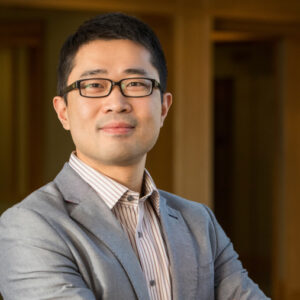The factors that lead to preterm birth, which affects nearly 10% of pregnancies worldwide, are poorly understood. Its effects, however, are known. Among them: cerebral palsy, intellectual disability, and visual and hearing impairments.
In order to better understand the cause of preterm birth, researchers need to better understand the uterine contractions patterns responsible for initiating preterm labor. Current imaging technology has not been good enough to get a clear picture of what causes contractions to start early and birth to arrive too soon.

The National Institutes of Health (NIH)’s Eunice Kennedy Shriver National Institute of Child Health & Human Development has awarded a five-year $1.67 million grant to Chuan Wang, assistant professor in the Preston M. Green Department of Electrical & Systems Engineering, to tackle this problem.
Wang is working with an interdisciplinary team including Shantanu Chakrabartty, the Clifford W. Murphy Professor of Electrical & Systems Engineering, and Yong Wang, associate professor of electrical and systems engineering, and of obstetrics and gynecology at the School of Medicine, to develop ultrathin, soft sensors with printed, stretchable electrodes that can generate 3D maps of the electrical signals from the uterine surface.
The sensors will be incorporated into a wireless, wearable imaging system that the team will test and validate in patients. The new technology will allow future researchers to map uterine signals during pregnancy and use this higher-quality data to better understand the causes and potential treatments of preterm birth.
The McKelvey School of Engineering at Washington University in St. Louis promotes independent inquiry and education with an emphasis on scientific excellence, innovation and collaboration without boundaries. McKelvey Engineering has top-ranked research and graduate programs across departments, particularly in biomedical engineering, environmental engineering and computing, and has one of the most selective undergraduate programs in the country. With 140 full-time faculty, 1,387 undergraduate students, 1,448 graduate students and 21,000 living alumni, we are working to solve some of society’s greatest challenges; to prepare students to become leaders and innovate throughout their careers; and to be a catalyst of economic development for the St. Louis region and beyond.


